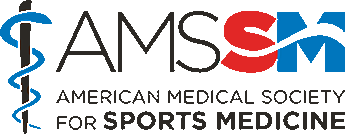 What is it? Resistance training refers to the use of various methods of strength training, including free weights, machines, body weight, elastic cords, tubes and many other devices, to help apply resistance to body movements, which, in turn, increases one’s ability to exert or resist force.
Symptoms/Risks Some of the risks associated with resistance training can include: • Repetitive soft tissue injuries to lower back • Overuse injuries • Growth plate injuries in young athletes
Sports Medicine Evaluation & Treatment If you visit your sports medicine physician, you might be asked to complete a pre-participation exam. This includes a targeted family and medical history, history of previous injuries, cardiovascular, and musculoskeletal exam, along with some questionnaires. The sports medicine physician can also identify contraindications and limitations to participation, and modify elements to help with participation and training. They may also provide you with education and guidance with nutrition, hydration, and education regarding potential side effects of performance-enhancing drugs. Your physician can review radiological imaging, manage rehabilitation for sports-related injuries, and guide a return-to-play timeline. There may be a focus on rehabilitation goals, thus they may recommend physical therapy which focuses on strength, endurance, and flexibility.
Injury Prevention To help prevent injuries during resistance training, adults who have some knowledge in this area should provide supervision and instruction at all times. Participants should wear appropriate clothing and closed footwear at all times, and the use of strength training equipment should be appropriate for the participant. The main focus should be on safe and proper technique which focuses on correct movements and good breathing mechanics. To avoid injury during periods of accelerated growth in young athletes, the intensity and the total volume of training, their response to training, and their level of discomfort and pain, should be monitored very closely. Participants should also make sure there are adequate rest periods.
Return to Play Return-to-play in case of a resistance training-related injury should take into account the big picture (see below) and value the athlete’s health above all. The decision can be to: 1. Allow the athlete to continue to participate in resistance training; 2. Allow the athlete to participate, but only with limitations; or 3. Exclude the athlete from participation, pending further evaluation. Restrictions and limitations to resistance training participation should be discussed with the athlete, the athlete’s parents (if applicable), and the coach, in detail, to avoid misinterpretation. The clinician’s recommendation to return to play should be made after a diagnosis of a medical condition or musculoskeletal problem in the context of the athlete’s age, maturity, severity of injury, sports activity, the importance of any upcoming event to the athlete, and sequelae if the athlete is injured further. AMSSM Member Authors References Category: Exercise, [Back] |

